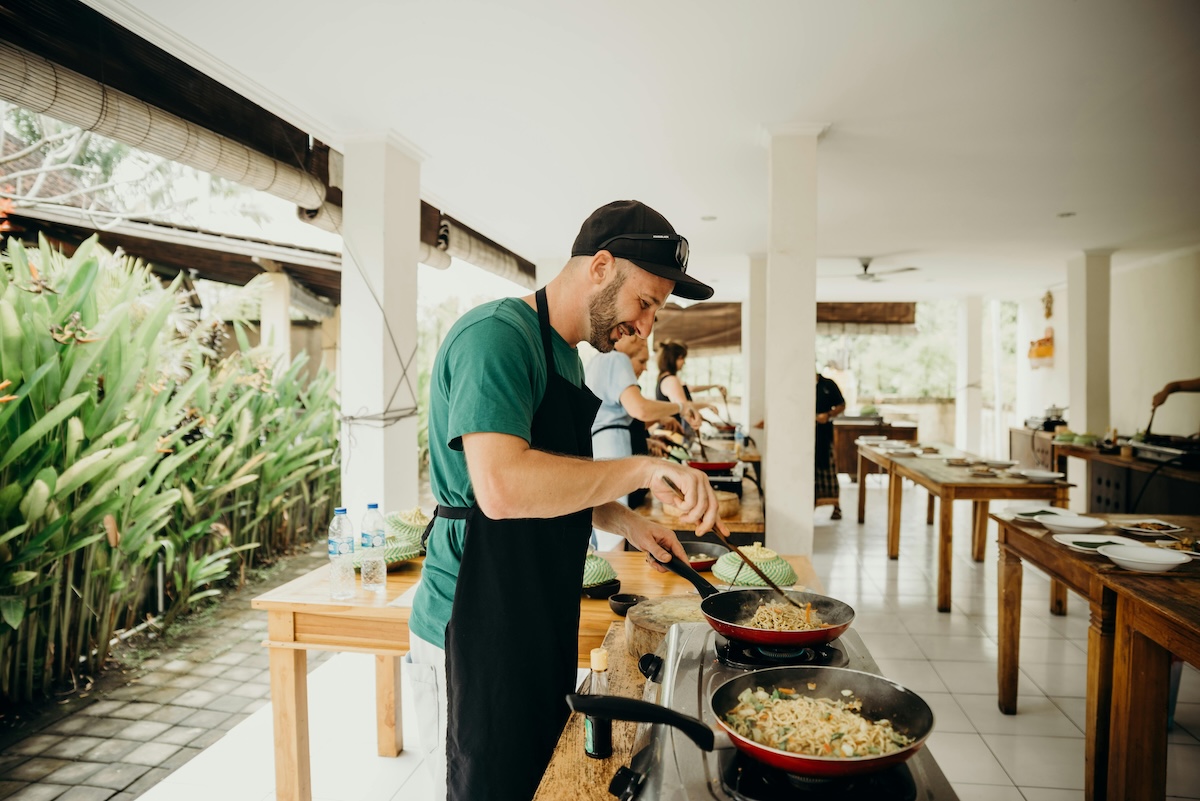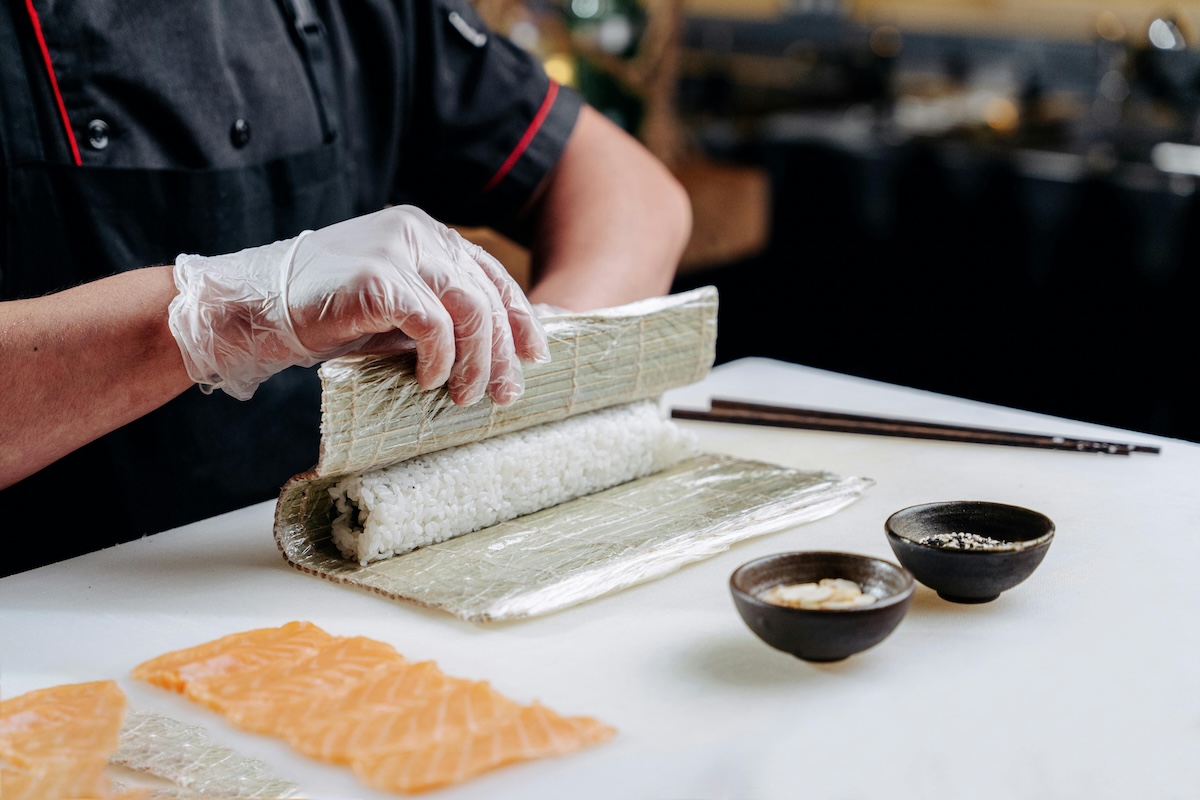
How Cooking Classes Abroad Are Transforming Cultural Travel Experiences
By: Cooper Haywood
Skip to Section
Article Summary
Forget Instagram food pics – cooking classes abroad let you get your hands dirty and actually understand why that tortilla tastes like home to someone.
This article serves up the real deal on why cooking classes beat restaurant hopping when you’re traveling. You’ll learn how grinding chilies for mole or folding tamales in a sunlit kitchen creates connections that last way longer than your vacation tan. The piece walks you through how these experiences transform from tourist activities into genuine cultural exchanges, where vendors share family spice secrets and grandmothers teach you techniques passed down through generations. Plus, you’ll get the scoop on how bringing these skills home turns your kitchen into a passport for reliving your adventures.
- Cooking classes teach you the why behind the food – the traditions, celebrations, and histories tied to each dish.
- Food breaks language barriers when vendors share epazote tips in Mexican markets or spice-blending secrets in India.
- Learning techniques like pasta-making in Italy or tortilla-pressing in Mexico connects you to generations of tradition.
- The skills you bring home spark kitchen creativity and let you relive your journey every time you recreate a dish.
- Sharing recipes with friends and family extends your cultural connection long after your trip ends.
The first thing I noticed was the smell—smoky, rich, and warm. A small fire crackled in the corner as a local chef, her hands dusted with flour, showed me how to press tortillas from a lump of dough. “Not too thin,” she said with a smile, “or they’ll rip.”
I glanced around the open-air kitchen, where others were slicing peppers and grinding spices with practiced ease. This lesson was a reminder to pause and enjoy the moment. Every step felt like a window into the soul of the place, a connection made through flavors, textures, and time.
In that little kitchen, surrounded by laughter and the steady rhythm of chopping knives, it struck me: cooking isn’t just about food. It’s a way to truly understand a culture—its history, its people, its essence. And when done right, it changes the way you see the world.
Culinary Tourism: A Gateway to Cultural Immersion
Travel has always been about discovery, but there’s something uniquely transformative about discovering a place through its food. Beyond landmarks and itineraries, the heart of any culture beats in its kitchens, markets, and dining tables. Culinary tourism takes this idea a step further, offering travelers the chance to immerse themselves in the flavors and stories that define a destination.
Unlike simply eating at a restaurant, cooking classes invite you to roll up your sleeves and be part of the process. You learn what’s on the plate and why it matters—the traditions, celebrations, and histories tied to each dish. It’s hands-on, personal, and deeply rewarding.
Imagine grinding chilies for a rich Mexican mole or layering spices for a fragrant Indian biryani. Each step is a window into centuries of tradition. Cooking classes let you experience culture in the most delicious way possible.
The Long-Lasting Impact of Culinary Experiences

Photo by Ivan Samkov from Pexels
Cooking classes abroad leave a lasting impression that extends far beyond the trip itself. Every time you eat in, for instance, an award-winning Mexican restaurant back home, you’ll remember the time you folded tamales in a sunlit kitchen, guided by the warm encouragement of a local chef. Each time these meals are recreated, they evoke memories of the journey…the laughter shared, the aromas in the kitchen, and the stories told by the instructor.
These experiences also foster a newfound appreciation for cultural diversity. A traveler who learns to cook Japanese sushi may start to see the care and precision behind every roll, shifting the way they view a simple dinner at home. The act of recreating these dishes becomes a gateway to understanding the traditions and values of another culture.
Food has a way of connecting people, even after the trip ends. Sharing a recipe with friends or family back home continues the story, turning a single class into a lifelong cultural connection.
Fostering a Cultural Connection
Food has a way of bringing people together, even when language is a barrier. In a busy Mexican market, a vendor might offer a handful of fresh epazote while sharing its significance in traditional stews. Across the globe in an Indian spice shop, a merchant may reveal family tips for blending garam masala. These exchanges are deeply personal and rooted in culture.
Cooking classes take this connection further. Guided by a local chef, participants learn the traditions and techniques that shape a community’s cuisine. Preparing tamales with a grandmother in Oaxaca or crafting parathas in Delhi lets you build new skills while immersing yourself in heritage and history.
These moments transform travelers into active participants. By the time the meal is ready, it carries the essence of the culture, enriched by shared stories and the bonds formed while creating it together. It becomes a meaningful and unforgettable experience.
Transforming Travel Through Immersive Learning
Cooking classes provide an opportunity to move beyond tasting food and explore the traditions and stories behind every dish. Learning to knead pasta dough for handmade ravioli in an Italian countryside kitchen or crafting tortillas from fresh masa in Mexico offers a hands-on connection to techniques refined over generations.
In Thailand, an instructor might share the importance of balancing flavors while guiding participants through the steps of creating spicy dishes. These moments reveal the cultural roots of the dish and how food serves as a reflection of the people who create it.
Travelers leave these experiences with so much more than culinary skills. They gain a deeper understanding of the destination, its values, and its traditions. Cooking becomes a lens through which to appreciate the culture, transforming an ordinary trip into something profoundly memorable and meaningful.
Inspiring Creative Exploration Back Home
The inspiration from a cooking class abroad doesn’t end when the trip does. Returning home with new skills and recipes can spark creativity in the kitchen. Travelers might find themselves experimenting with spices picked up at a Moroccan souk or recreating the delicate sauces they learned in a French culinary class. These moments allow the flavors of their journey to linger long after unpacking.
Cooking at home with techniques learned abroad encourages curiosity about other cuisines and cultures. A traveler who mastered Spanish paella may be inspired to explore other Mediterranean dishes, diving deeper into the region’s culinary traditions. This creativity fosters an adventurous approach to both cooking and experiencing food.
Sharing these dishes with friends and family also creates opportunities to relive the journey. Hosting a dinner featuring recipes learned on the road becomes a way to connect, tell stories, and celebrate the cultural richness discovered through food.
Wrapping Up
Cooking classes abroad have a way of staying with you, long after you’ve returned home. They’re a doorway to understanding, a celebration of tradition, and a bridge to new connections. Through the simple act of preparing a meal, you gain a deeper appreciation for the culture and the people who share it with you.
These moments show that travel can be more than ticking sights off a list. It’s the warmth of shared laughter, the aroma of spices lingering in the air, and the stories exchanged while creating something together. Through cooking, you carry a piece of the journey home, one flavor and memory at a time.
About the Author
Cooper Haywood is a seasoned writer specializing in tech, business, and lifestyle. Known for his sharp eye for emerging trends and innovations, he provides readers with insightful analysis and fresh perspectives on the topics shaping industries and enriching everyday life.
Featured photo by Alesia Kozik from Pexels
Information published on this website and across our networks can change over time. Stories and recommendations reflect the subjective opinions of our writers. You should consult multiple sources to ensure you have the most current, safe, and correct details for your own research and plans.
Frayed Passport is a participant in the Amazon Associates Program, an affiliate advertising program designed to provide a means for sites to earn advertising fees by advertising and linking to Amazon.com. We also may share links to other affiliates and sponsors in articles across our website.




